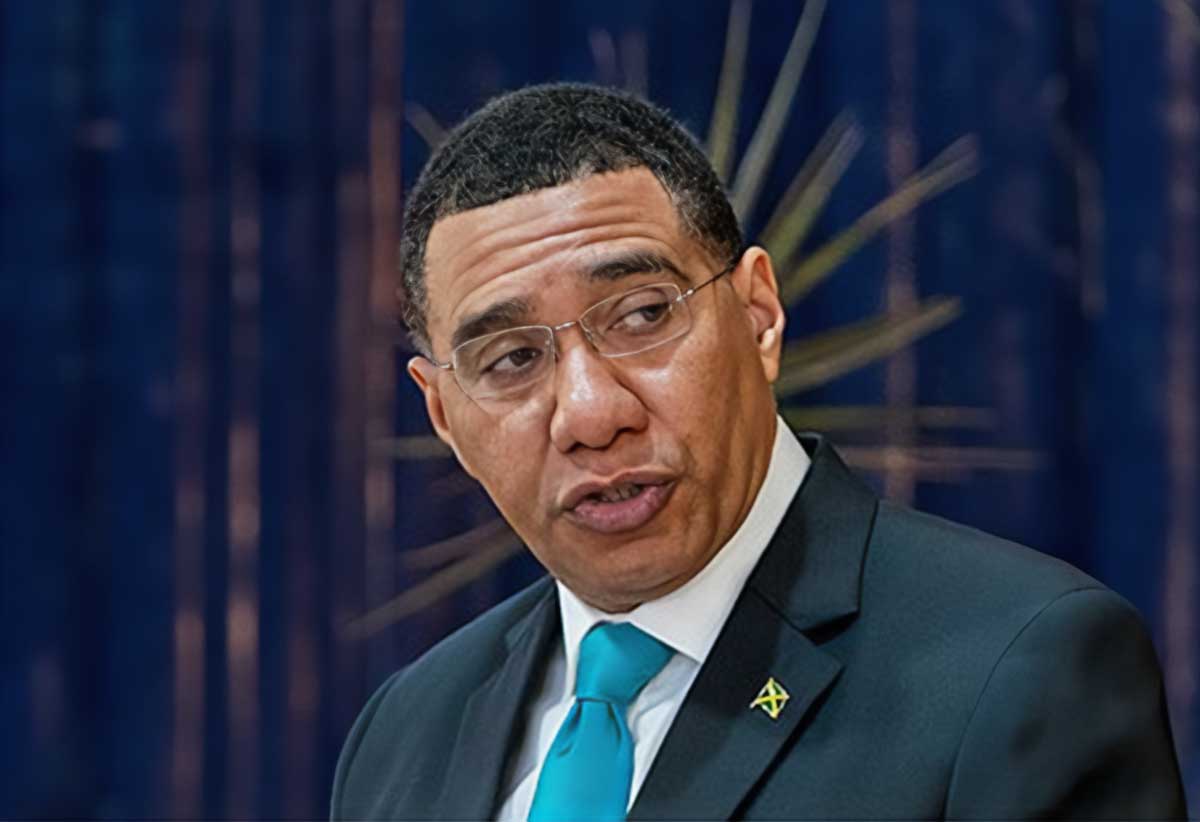

Salary increases for parliamentarians is always a touchy subject, as Saint Lucia found out over two decades ago and Jamaica is learning only now.
Prime Minister Andrew Holness’ administration implemented an across-the-board salary increase for parliamentarians that was welcomed by both sides of the Jamaica House, until the public started reacting.
The finance minister offered explanations to justify the increases and the opposition shadow finance minister also agreed, but as soon as the news started turning bad, the MPs and their parties started back-pedaling.
First, the Prime Minister rolled-back his own increase, saying he’d not accept it; then the major opposition party issued a public statement calling on the Prime Minister to also roll-back all other MPs’ increases.
The political leaders on both sides found themselves in a Catch 22 situation where all MPs would have welcomed the increases, but for the public response.
The analyses and conclusions are interesting, from those arguing the increases are constitutionally, judicially and legally proper, to those who counter that they are nonetheless wholly-improper, especially when compared to the salaries of Public Officers (Civil Servants) and ordinary workers — and especially in the Post COVID-Supply Chain-Ukraine Sanctions era when everyone’s pockets are hit equally, only with (as always) some hit much-harder than others and many more unable to take any more licks.
I will not delve into the figures — in the millions of Jamaican dollars — or compare them with US or EC dollars, but one interesting analysis I saw (out of London) says while the Jamaican parliamentarians’ increases are awarded on the basis of calculations on par with or near average that for UK MPs, the UK is the world’s sixth largest economy and can therefore afford the increases.
Politicians and advocates of all walks of life have found ways and means of getting-in on the increasingly-heated nation-wide discussion and debate, while Prime Minister Holness must (by now) also be wondering why he went ahead with such a bad and badly-timed political decision.
He must have known that people’s general perceptions of politicians is that they shouldn’t be paid more than anyone else and it would be normal and natural for everyone not getting any wage increase to feel, one way or another, about the ‘political directorate’ (aka ‘politicians’) ‘paying themselves’ increases worth ‘millions of dollars’, at a time when ordinary people, employed or not, have to pay more for the same items each time they go to the supermarket or grocery.
If anything, Jamaica’s history is pregnant with decades-full of examples of its long tradition and legacy of political leaders and trade unions standing-up against politicians they consider to be enriching themselves while working people suffer, a list as long as from the early days of Marcus Garvey in Kingston, all the way up to the Alexander Bustamante-Hugh Shearah-Norman Manley era, through the Edward Seaga-Michael Manley years and into the Portia Simpson-Andrew Holness age in the first quarter of the 21st century.
It will remain a mystery and perhaps never be known what could have driven the Jamaica Prime Minister to knowingly make such a bad political move, whether it was the result of pressure from below, or a top-down decision he took, ready-and-willing to defend and satisfactorily explain it to a most-likely-skeptical public.
But if only PM Holness had consulted present and former CARICOM colleagues who’ve ‘been there and done that’, he’d have learned how Saint Lucia handled the matter at the start of the end of the 20th Century.
After leading the Saint Lucia Labour Party (SLP) into a 16-1 victory, the new administration, led by then Prime Minister Dr Kenny D. Anthony (and including current Prime Minister Philip J. Pierre as Minister for Tourism) inherited a salary increase approved by the Salaries Review Commission under the previous administration just before the General Elections.
Payments became due early in the administration’s first term and naturally, the 16 SLP MPs – most new – qualified for the increases.
But Prime Minister Anthony took a bold decision, as Chairman of Cabinet and Political Leader of the ruling party, to not accept the increases.
Instead, he decided the amount due to the 16 SLP MPs would all be donated to the Belle Fashions workers, who’d been left unemployed and not compensated for many years after a foreign-owned clothing factory closed its doors in the Dennery Valley.
The move was welcomed by the workers, trade unions and the public, but Prime Minister Anthony was severely criticized by some of his MPs, some accusing him of “acting unilaterally” and others saying they’d earmarked the increase for necessary expenses.
However, the move by the PM, while not satisfying all the men and women on his side, saved his government from going through what Prime Minister Holness and his Cabinet are going through now: agreeing to a salary increase and then sounding like no-longer-agreeing, just because the public reacted in a most-predictable way.
Today, the Belle Fashions workers are still thankful and the MPs who complained of being deprived of their legal earnings are looking-back with the benefit of hindsight and agreeing it was a wise move by their Prime Minister and Political Leader, even though not popular at the time.
The Jamaica PM would get much counsel from other CARICOM colleagues.
And he’d also learn what the public response was in Saint Lucia when a Cabinet Minister in the previous administration told the press she was able to afford payments on a bank loan to purchase a sizeable condo in Cap Estate from “my salary”.
Given all I’ve heard and read about what’s said and is still being done to force him to roll-back the increases, I do not think I’m at-all-wrong in concluding that PM Holness has dug himself in a deep, deep hole that he will not be able to easily dig his way back up-and-out of.
Just wait and see…












